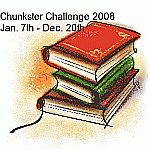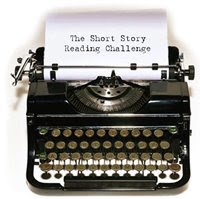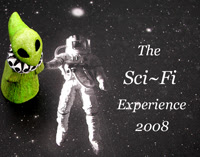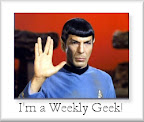This is a story about a person I either met in real life or completely invented. Let’s call her Jenny. At first glance, Jenny is unbelievably white. She has the palest of Norwegian complexions, with whitish blonde hair she keeps in a sloppy partial ponytail. She is skinny, and pimply, and her faded clothes hang off of her awkwardly. She talks extremely quickly, her words stepping over each other. Mostly, though, she stares, with eyes slightly agog, as if everything she observes is surprising.
When I am introduced to her, I learn 3 important facts. She is from Singapore. She is not a missionary kid. And she does not like being asked if she is a missionary kid.
That is the extent of our first conversation, and I leave it wishing hardily that it would also be the last. It is not to be however, as we are going to be spending several months traveling together.
I am at the airport and we end up pacing around together. She has been to this airport about 37 times, she knows that your luggage almost always gets lost here, and that there are actually 4 wings to the airport, not 3 like the map says. But she does not know where to get a boarding pass.
My first journal entry when we arrive at our destination starts out with: I am really finding Jenny annoying. Wanted to strangle her today right in the middle of the airport. Stopped by the fact I don’t think airport security would believe my insanity defense.
The group is small and we spend a lot of time together. Avoidance of Jenny doesn’t seem to work. As the ranks quickly form in our group of travelers, I find myself constantly around her, because no other clique will take her in.
She makes such claims. She has traveled extensively. She has studied abroad in South Africa, she has lived in Singapore since moving from the US at the age of 7, she has been to all of the Hard Rock Cafes in Asia, she had a driver’s license from the Philippines that cost her $10, her boyfriend is from Australia.
We catch her, though, in the weirdest lies. She says she has lived in the US for one semester prior to this trip. But we know her roommates. And she lived with them for 2 semesters. She turns up her nose at a pancake breakfast, but later tells us cheerfully that her favorite breakfast at McDonald’s is hotcakes.
For all of her alleged world-traveling, her knowledge and appreciation of American culture is remarkably non-existent. During her time in the US, she left her room only to go to class. Literally. She didn’t once visit the school cafeteria, the campus bookstore, or anyone else’s room, much less a mall or restaurant. Such a complete lack of cultural understanding is what leads perhaps to her grating style of speaking. Whenever she opens her mouth, she comes across disdainfully or braggingly.
We are together almost constantly. I am frequently reminding myself that I am a mature adult who does not harbor the desire to strangle someone just because they are slightly irritating.
Sometimes, though, she will be with us, and I won’t have to grit my teeth as much. Occasionally, she looks so helpless sitting next to me on the bus, her eyes in perpetual surprise, that I feel the slightest twinge of compassion. She comes along when we are celebrating a birthday party, and I see her actually smile.
I make a joke here or there, and she laughs politely. She tells us stories about Singapore with a kind of giggly frankness. Examples: “We get our mail but they cross out things they don’t like with a black marker.” “They have weekly hangings on Friday.” Or “We have a one-party democracy.” We are sharing a room, once, with other girls from our group and I am changing into pajamas. She blurts out suddenly, “I have the same underpants as you!” and there is a moment of silence. We can all find her statement wildly shocking and thoroughly abuse her later behind her back for being so darn weird. Or we can laugh, because it is funny.
So we laugh. As if she is one of us who has just made an interesting joke.
The day will come later on when we discover she’s gone missing and we frantically search for her in the streets of a foreign city. When we find her, we all hug and let out enormous sobby sighs of relief. She tells us that someone had been following her around after she finished a call on the payphone, and she couldn’t run fast enough to get away from him. “What did you do?” we ask her breathlessly. She was very logical. She ran to the lobby of the closest hotel, knowing that we would come find her eventually. Her faith in us makes me feel guilty for hating her so much.
There is the day she tells us she learned more about American culture here on this trip than her one (or two) semesters in the US.
One day, I somehow convince her to trade her colorless oversized turtleneck and try on a fitted jacket and colorful embroidered skirt at a clothing boutique. Shocked at my success, I snap a photo to immortalize the moment. She does not buy the items, of course, that would be too much to ask. But I load the pictures on her computer and make her promise to show them to her boyfriend.
Those are only certain moments, though, and they are surrounded by other moments where she throws a fit because we split a bill and she got 51 cents back instead of 52. When she tells us that people who don’t double-major are lazy. Where she is pissed for a day and a half because bad planning has left us only a few minutes to see the Leaning Tower of Pisa.
When we part, we don’t promise to write. I know she will not email me, and I will not email her. I will not ever see her again, because she is moving to Australia (or so she says). In fact when we part, she is in a snit because I still owe her 3 euros. She grudgingly gives me a back pat while I hand over all my leftover change (2.10 euros).
I fly home, anxious to see my family. But once I am back, I cannot help but turn Jenny over in my mind, examining my memories of her from every angle. I want to puzzle her out, understand what made her tick. I want to figure out if I liked or hated her. Although I have thought about her often enough to turn the rough pebble of a memory into a smooth stone, she remains to me a pale mystery.




















